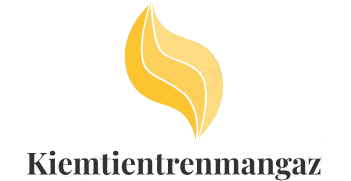The Rise of MOOCs: A Comprehensive Exploration of Massive Open Online Courses
In today’s fast-paced digital world, the landscape of education is constantly evolving. One of the most significant developments in recent years has been the rise of Massive Open Online Courses (MOOCs). These online platforms offer a wide array of courses from top universities and institutions around the world, accessible to anyone with an internet connection. The accessibility, flexibility, and affordability of MOOCs have revolutionized the way people learn, providing opportunities for lifelong learning and professional development like never before.
But how did MOOCs come to prominence? What are the key factors driving their growth? And what does the future hold for this innovative form of education? In this article, we delve into the world of MOOCs, exploring their origins, current status, and potential impact on the future of learning.
The Origins of MOOCs

The concept of MOOCs first emerged in the early 2000s, with roots in open education and distance learning. The term “MOOC” was coined in 2008 to describe a new type of online course that was free, open to anyone, and could accommodate a large number of participants. The first MOOCs were offered by leading universities such as Stanford, MIT, and Harvard, paving the way for a new era of online learning.
Early MOOCs followed a connectivist approach, emphasizing collaborative learning, networked knowledge, and the use of digital tools to create a more interactive and engaging learning experience. These courses attracted thousands of participants from around the world, sparking interest in the potential of online education to democratize access to knowledge.
As the popularity of MOOCs grew, so did the number of platforms offering these courses. Companies like Coursera, edX, and Udacity emerged as key players in the MOOC market, partnering with universities to deliver high-quality courses in a wide range of subjects. Today, MOOCs cover everything from computer science and business to arts and humanities, making education more accessible and diverse than ever before.
The Benefits of MOOCs

One of the primary advantages of MOOCs is their accessibility. Anyone with an internet connection can enroll in a MOOC, regardless of their location, background, or financial resources. This opens up opportunities for individuals who may not have access to traditional educational institutions, allowing them to learn at their own pace and on their own terms.
MOOCs also offer flexibility, allowing students to study at a time and place that suits them. This is especially beneficial for working professionals, parents, or individuals with busy schedules who may not be able to attend traditional classes. With MOOCs, learning can be integrated into daily life, making it easier to balance work, family, and education.
Another key benefit of MOOCs is their affordability. Many MOOCs are offered for free, with the option to pay for a certificate or credential upon completion. This makes high-quality education more accessible to a wider audience, reducing barriers to entry and leveling the playing field for learners around the world.
Furthermore, MOOCs allow for self-paced learning, giving students the freedom to progress through a course at their own speed. This flexibility caters to a variety of learning styles and preferences, empowering students to take control of their education and tailor their learning experience to suit their needs.
Challenges and Controversies

While MOOCs offer numerous benefits, they are not without their challenges and controversies. One of the criticisms leveled against MOOCs is their low completion rates. Many participants enroll in MOOCs out of curiosity or interest, without a clear plan or commitment to finish the course. This can result in high dropout rates, raising questions about the effectiveness of MOOCs as a form of education.
There is also debate about the quality of MOOCs compared to traditional face-to-face courses. Some argue that the lack of direct interaction with instructors and peers can limit the depth of learning and engagement in online courses. Others point to the potential for cheating and plagiarism in MOOCs, raising concerns about academic integrity and the credibility of online credentials.
Additionally, the issue of credentialing and accreditation remains a challenge for MOOCs. While many platforms offer certificates or badges to recognize completion of a course, these credentials may not always be recognized by employers or educational institutions. This can hinder the value of MOOCs as a pathway to career advancement or further education.
The Future of MOOCs

Despite these challenges, the future of MOOCs looks promising, with continued growth and innovation on the horizon. As technology advances and online learning becomes more mainstream, MOOCs are likely to play an increasingly important role in education, training, and professional development.
One trend shaping the future of MOOCs is the rise of micro-credentials and nano-degrees. These short, targeted courses offer specific skills and competencies that are in high demand in the job market. By completing a series of MOOCs, learners can earn credentials that demonstrate their expertise in a particular field, enhancing their employability and career prospects.
Another area of growth for MOOCs is the integration of artificial intelligence and machine learning technologies. These tools can personalize the learning experience, providing tailored recommendations, feedback, and support to individual learners. By harnessing the power of AI, MOOCs can deliver a more personalized and effective educational experience for students.
Furthermore, MOOCs are expanding their reach to underserved communities and regions around the world. By partnering with local organizations and governments, MOOC platforms are working to make education more accessible to individuals in developing countries, bridging the digital divide and empowering learners to pursue their educational goals.
Common Misconceptions
One common misconception about MOOCs is that they are only for tech-savvy individuals or those with a background in online learning. In reality, MOOCs are designed to be user-friendly and accessible to learners of all levels, regardless of their familiarity with technology. With simple interfaces, clear instructions, and support resources, MOOCs are suitable for beginners and experienced learners alike.
Another misconception is that MOOCs lack interaction and engagement compared to traditional classroom settings. While it’s true that MOOCs may not offer the same level of face-to-face interaction, many courses incorporate discussion forums, group projects, and peer feedback to foster collaboration and community among participants. These interactive features enhance the learning experience and create opportunities for engagement and social learning.
Conclusion
In conclusion, the rise of MOOCs represents a significant milestone in the evolution of education. These online platforms have democratized access to knowledge, offering high-quality courses from top institutions to a global audience. Despite challenges and controversies, MOOCs continue to grow in popularity and impact, shaping the future of learning in profound ways.
As we look ahead, it’s clear that MOOCs will play a central role in the future of education, providing opportunities for lifelong learning, skill development, and personal growth. By embracing the potential of MOOCs and leveraging their benefits, we can unlock new possibilities for education and empower individuals to achieve their full potential.
Whether you’re a student, a professional, or a lifelong learner, MOOCs offer a world of knowledge at your fingertips. So why wait? Dive into the world of MOOCs today and discover the endless possibilities that await you.




